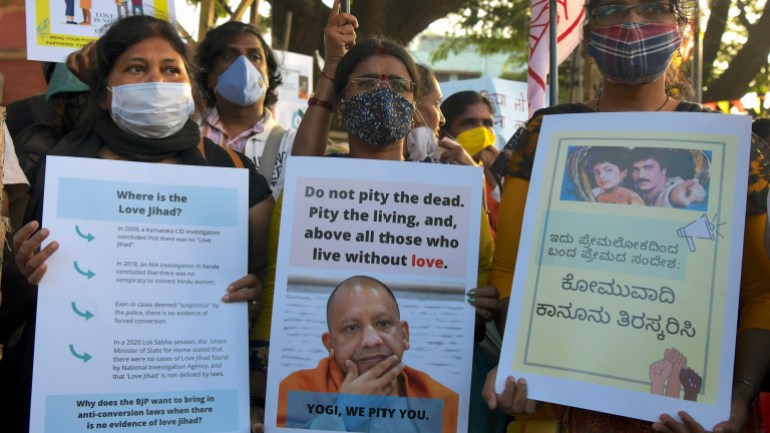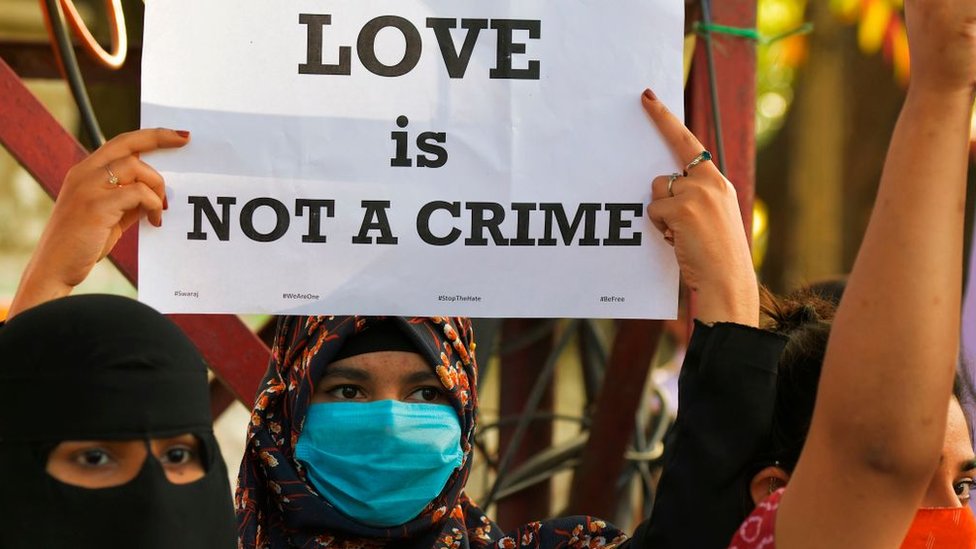Recent legal developments have raised concerns about the right of adult citizens to freely choose their life partners. The controversial ‘love jihad’ law, enacted by several BJP-ruled states, including Uttar Pradesh, aims to curb fraudulent religious conversions through marriage.
Full Story:
The Prohibition of Unlawful Conversion of Religion ordinance, commonly known as the ‘love jihad’ law, came into effect in Uttar Pradesh in November 2020. The law mandates couples to inform the district magistrate of their intention to convert, triggering inquiries to ensure no coercion or inducement. Even the Special Marriage Act of 1954, designed to facilitate interfaith marriages, requires a 30-day public notice, presenting challenges for couples facing time constraints or potential social pressures. The law, which aimed to prevent religious conversions through marriage, led to 34 arrests within a month of its implementation in UP, mostly initiated by irate parents with state backing.

Source: Al Jazeera
In January 2021, the Allahabad high court delivered a remarkable judgment in a case involving a Muslim woman who converted to Hinduism to marry her Hindu partner. Justice Vivek Chaudhury declared the 30-day notice as an invasion of privacy and ruled it non-mandatory. However, recent decisions by the same court in 2021 rejected protection pleas from eight interfaith couples, stating that their marriages did not comply with the anti-conversion law. This shift in stance has raised concerns, especially considering the court’s earlier progressive judgments in favor of the right to choose a life partner.
While the Allahabad high court’s recent decisions have sparked worry, it is essential to note that other courts in India have upheld the right of consenting adults to marry without parental or community permissions. The Gujarat high court, in June of the previous year, ruled in favor of an adult daughter’s right to marry a Muslim man against the wishes of her petitioner mother. However, the recent trend in the Allahabad high court, especially considering the prevailing threat of honor killings, seems to prioritize procedural compliance over the safety and choices of interfaith couples.

Source: BBC
A 2018 Lok Foundation-Oxford University survey revealed that 93% of young Indians still have marriages arranged based on caste and faith. For those daring to love outside their birth religion, the legal system becomes their last resort. Yet, the recent alignment of certain courts with procedural norms has intensified the struggle for interfaith couples.



















































































